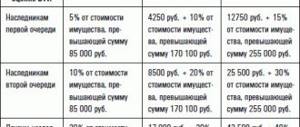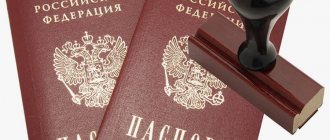Registration rules
The procedure for registering in a room in a communal apartment is no different from registering in any other residential premises.
| No. | Procedure |
| 1 | Obtaining consent of the owner (municipal or private owner) |
| 2 | Preparation of documents |
| 3 | Receiving a passport |
The service is of a declarative nature. If there are several owners of the room, then each of them must submit a personal application - consent to registration.
Obtaining owner consent
If registration is necessary for the owner of the room on the right of ownership, who recently purchased this living space, then he does not need to obtain permission at all. It is enough to go to the passport office at the location of the apartment and submit documents.
Moreover, it does not matter whether the citizen is the sole owner or owns only a share in the room.
The employer registers on the basis of a social tenancy agreement. The document gives the right not only to the responsible tenant, but also to his family members (specified in the contract) to receive registration in the room.
Preparation of documents
List of documents that must be submitted to the authorized body:
- civil passport of the owner - a private person;
- permission from the owner - local administration;
- employer's civil passport;
- civil passport of the citizen who needs to be registered;
- birth certificate of a child aged 0 to 13 years (if registration is required);
- extract from the Unified State Register for a room in the apartment;
- application from the owner - a private person;
- application from a citizen who needs to be registered.
The application must be completed by a person over 14 years of age. In relation to minor citizens, documents are drawn up by their legal representatives.
Receiving a passport
Depending on the method of filing the application, the processing time for the application varies.
The following options are possible:
- passport office – 7 days;
- through the MFC – 8 days (the period is increased due to the need to transport documents);
- through the State Services electronic portal - on the appointed day, 7 days after submitting the electronic application.
Only a person who needs registration can come for documents. The presence of the owner or tenant is no longer required.
Important! The service is provided exclusively free of charge. Any collection of fees is illegal.
If I buy 1
There is such a concept: the accounting standard for the area of a residential premises, that is, the minimum area on which a person can live. This norm is different for each region. For normal living of one person in Moscow, according to the standards, at least 10 square meters are required - which means that you must purchase at least 10 square meters or more to register.
You can buy a share
In the village of Selizharovo, Tver Region, a husband registered his wife in a house that belonged to him. It would seem that all the requirements were met, but the technical condition of the house was not suitable for living in, and therefore not for registration in it. The prosecutor's office demanded that the registration at the place of residence be cancelled. The marriage and registration were fictitious: the wife could not be found during the trial, and FMS checks showed that she had never lived in the house. The court agreed with the opinion of the prosecutor's office.
Municipal housing stock is included in the property of the municipality. It is the latter who acts as the manager of the property. The basis for the legal use of municipal facilities is the concluded social tenancy agreement.
If one of the owners wishes to register a new resident in a shared apartment, he must obtain the written consent of the other owners. Without such a document, the authorized person will refuse to register the entity. If the co-owners agree to accept one more neighbor, an unlimited number of people are allowed to register at the address.
Municipal real estate
The living space norm is the minimum square footage per resident. This indicator in accordance with Art. 50 LCDs are established by the local administration separately in each region. The tenant, with the consent of other tenants, has the right to move his close relatives or third parties into the premises. However, if after such moving in the total area per family member is less than the registration norm, registration of new tenants will be refused. The norm for living space in Russia is approximately 10-12 sq.m.
- Possession and use of property in shared ownership is carried out by agreement of all its participants, and if agreement is not reached, in the manner established by the court.
- A participant in shared ownership has the right to be given for his possession and use a part of the common property commensurate with his share, and if this is not possible, he has the right to demand from other participants who own and use the property falling on his share, appropriate compensation.
Registration in a communal apartment without the consent of neighbors
The owner can register any citizen in his room in a communal apartment without the consent of the neighbors.
Since 2020, the possibility of limiting the number of registered citizens depending on the area of the apartment is being considered.
In this case, owners of communal apartments will lose the opportunity to obtain registration for a wide range of people.
Only close relatives will be able to obtain registration.
The law provides for a special approach to registration in a communal apartment for various categories of citizens:
- for minor children;
- for the owner and his family members;
- for the employer and his family members.
Minor child
The owner, tenant, and third parties who are registered in a communal apartment have the right to register their official child without notifying the owner of the property, other residents and owners of other rooms.
Subsequently, he can be discharged only by a court decision or at the request of a parent.
Only the official parent is given the opportunity for unhindered registration. That is, a man or woman must be included in the child’s documents as a parent.
In case of deprivation of parental rights, a citizen does not lose this opportunity.
The owner and his family members
The owner of the apartment has the right of ownership to obtain registration in the room. The law considers a room in a communal apartment to be individual living space.
Therefore, there is no need to obtain the consent of neighbors in a communal apartment. The exception is the situation. When relatives own several rooms in an apartment on the basis of shared ownership.
Then you need to obtain permission for registration from the co-owners. But the owners of other rooms cannot influence the owners' decision.
Important! Family members of the owner who are registered in the room have the right to register their minor child (aged 0 to 18 years) in it without the consent of the owner. He doesn't even have to notify him about it.
Example . Ilya and Sofia inherited from their grandmother 2 rooms in a communal apartment on the right of common shared ownership. Ilya got married and moved into one of the rooms. But Sofia refused to consent to registration in the apartment of her brother’s wife. Although the girl did not actually live in the premises, the passport office refused to register Ilya’s wife. Thus, Ilya’s wife actually lived in the apartment, but could not obtain registration.
Registration Features
Common areas in a communal apartment are those intended for use by all residents, such as a bathroom, kitchen, bathroom, and hallway. And the room in which a person lives is his property and is in no way connected with other owners.
Therefore, registration in a communal apartment is not primarily related to the consent of the neighbors. What is important here is the desire of the owners of the room in which the person will be registered, as well as a sufficient number of living meters.
The owner of the living space has the right to dispose of his property according to his wishes (Article 228 of the Civil Code of the Russian Federation). Therefore, if we are talking about registering in a privatized part, then the consent of neighbors and health certificates are not needed . Requirements for their provision have no legal basis and contradict the civil code.
The same rules apply to temporary registration. If you need to register if a person does not have property rights, then all the specified documents will be required.
But when carrying out temporary registration in your own share, you will only need an identity card and documents for the right to own the living space.
If problems arise with registration due to which it is not carried out, you must obtain written confirmation of the refusal. Based on it, this decision can be appealed by filing an application in court.
FAQ
Let's consider the questions that citizens often ask when they need to register.
Owner rights
The right of the owner of a room in a communal apartment depends on how exactly the property is registered:
- If we are talking about a separate isolated room, then its owner has the right to dispose of it within the framework of the law, without looking at other neighbors in the communal apartment. Including registering relatives in it.
- If the apartment is not communal in the full sense of the word, but is in shared ownership, then each of the co-owners is obliged to obtain the consent of all the others for the registration of strangers.
There is only one exception to this rule - minor children registered with their parents.
Reasons for refusal
Registration in a communal apartment may be denied if the apartment is municipal and moving additional residents into it will reduce the living space allowance for each person.
But this should not be determined by the migration service, but by the owner of the residential premises, that is, the municipal authorities.
No one has the right to refuse the owner of the room to register relatives or any other citizens there.
If you receive such an unlawful refusal, you can appeal the decision of the FMS officials through the court.
Conditions and procedure for registering citizens in a communal apartment
The municipal body, acting as the landlord of communal housing, has the right to prohibit the occupancy and registration of new residents if, after their registration, the total area of the corresponding room in communal housing per family member of the tenant of the premises is less than the accounting norm provided by the legislator.
Conditions for registration in a communal apartment
- obtain the written consent of the lessor municipality if a citizen who is not a close relative of the citizens living in the apartment is registered in the apartment;
- obtain written permission for the resident’s registration from all adult citizen-residents registered with him;
- come to the territorial office of the Federal Migration Service or the passport office of the management company with your own passport and identity card of a citizen registered in communal housing;
- submit, in addition to the necessary consents, a social rent agreement, your personal account or a warrant for the occupied room;
- submit an application for the need to register a new tenant.
If a neighbor in a communal apartment is engaged in arbitrariness, he can be held accountable in accordance with the provisions of Article 19.1 of the Code of Administrative Offenses of the Russian Federation. If the violations are systematic and the offender does not pay attention to court decisions, it is possible to initiate the procedure for eviction from the occupied living space. To do this, you should contact lawyers who will help you find out exactly how to do this.
In order for these problems to be resolved correctly, an inspection is first carried out and a report is drawn up, on the basis of which a general decision is made to repair the property. Citizens have the right to make such a decision on the procedure for carrying out repair work, collecting money to pay for services and purchase building materials.
In the room
- The paper has a standard form that contains questions for the applicant - he must fill in the blank lines with answers.
- The form contains 2 sections: the main one, which remains with the Federal Migration Service, and a cut-off section, which is needed if the citizen has not been deregistered at the place of residence.
- On behalf of minors, their legal representatives can submit an application. In this case, information about them must be indicated in the appropriate section.
- The form must contain the name of the department to which the documents are being submitted.
- The corresponding section of the form must contain information about the document on the basis of which registration is made. The applicant may exercise his right and not provide a copy of the social tenancy agreement, but only indicate information from it in the application. But in this case, the registration period may take a little longer.
- When there are no individual devices showing resource consumption, payment is made according to a special agreement, taking into account the amount of space occupied or the number of registered persons.
- When individual metering devices are installed, then each party makes payment according to their readings, and the use of the common territory is paid for by agreement.
- First of all, persons from among the owners or tenants of this apartment, who are recognized by law as low-income or in need of improving the quality of their housing conditions;
- Secondly, persons whose area per family member does not meet accepted standards;
- When there are no persons in the communal apartment who meet the above conditions, the housing is transferred to a citizen who needs living space and is on the waiting list.
- obtain the written consent of the lessor municipality if a citizen who is not a close relative of the citizens living in the apartment is registered in the apartment;
- obtain written permission for the resident’s registration from all adult citizen-residents registered with him;
- come to the territorial office of the Federal Migration Service or the passport office of the management company with your own passport and identity card of a citizen registered in communal housing;
- submit, in addition to the necessary consents, a social rent agreement, your personal account or a warrant for the occupied room;
- submit an application for the need to register a new tenant.
- Law on Residence of the City of Moscow No. 6 of March 11, 1998, which defines that a communal dwelling is a dwelling with several owners, users or proprietors who jointly operate non-residential facilities in a given apartment.
- Law of the Nizhny Novgorod Region dated 09/07/2007 No. 123-Z, which states that communal housing is considered to be a dwelling in which several families or citizens live, regardless of the basis of residence, who together use auxiliary facilities in this dwelling.
- Due to frequent changes in legislation, information sometimes becomes outdated faster than we can update it on the website.
- All cases are very individual and depend on many factors. Basic information does not guarantee a solution to your specific problems.
- The application indicates a different owner of the premises or the housing is in social rent from one person.
- The apartment is municipal, and the arrival of a new tenant reduces the living space standards provided for one person.
- income for each family member is less than two subsistence minimums;
- the cost of the property owned by the applicant is less than the cost of a square meter of housing in St. Petersburg, increased by 10 times;
- per apartment resident there should be no more than 9 square meters in a regular apartment and no more than 15 in a communal apartment.
- Individuals who are owners or tenants of living space in a communal apartment, registered in the project. This is possible by submitting a standard application to one of the authorized bodies.
- Companies, firms and organizations that have entered into contracts with the city administration regarding partial or full participation in improving the living conditions of residents of the Northern capital.
- Constitution of the Russian Federation on the right to housing;
- Provisions of the Law on the target program “Resettlement of communal apartments in St. Petersburg”, adopted by the Legislative Assembly of St. Petersburg on 17.10.07;
- Amendments to Laws No. 603/106 (28.10.08), No. 649/118 (14.12.09), No. 408/91 (30.06.10), No. 297/53 (19.07.12), No. 259/42 ( 05/21/15), No. 273/47 (05/20/16);
- Regulations for the implementation of the Law;
- The procedure for registering citizens who need improved living conditions.
- a separate apartment on the secondary real estate market in a city or region;
- a separate apartment on the primary market, if the house is at least 70% ready;
- rooms with neighbors, if after this transaction the apartment becomes separate;
- a spare room in public housing if the resulting housing becomes private.
- provision of premises for living under social tenancy agreements;
- exchange and exchange of premises in such a way that one communal apartment will be occupied by members of the same family;
- receiving material payments for the construction or purchase of housing (large families are a priority);
- purchasing housing in vacant communal apartments using a reduction factor and installment payments.
- Related Posts
The Housing Code of the Russian Federation established that common property (common places of use) in a communal apartment is in the common shared ownership of the owners of the rooms. Article 41 of the Housing Code of the Russian Federation: "1. The owners of rooms in a communal apartment own, by right of common shared ownership, the premises in the apartment used to service more than one room (hereinafter referred to as the common property in the communal apartment).”
Entered into force on 03/01/05. The Housing Code of the Russian Federation also recognized an isolated room as a residential premises. Article 15 of the RF Housing Code: “2. Residential premises are recognized as isolated premises, which are real estate and are suitable for permanent residence of citizens (meets established sanitary and technical rules and regulations, other legal requirements (hereinafter referred to as requirements)). Article 16 of the Housing Code of the Russian Federation classifies an isolated room as a type of residential premises.
What documents are required?
5. Upon expiration of the period of use of residential premises established by a court decision taken taking into account the provisions of Part 4 of this article, the corresponding right to use the residential premises of a former family member of the owner is terminated, unless otherwise established by agreement between the owner and this former member of his family. Before the expiration of the specified period, the right to use the residential premises of a former family member of the owner is terminated simultaneously with the termination of the ownership right to this residential premises of this owner or, if the circumstances that served as the basis for maintaining such a right have ceased, on the basis of a court decision.







